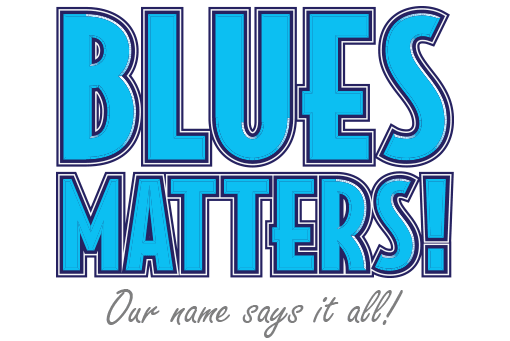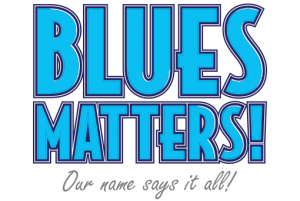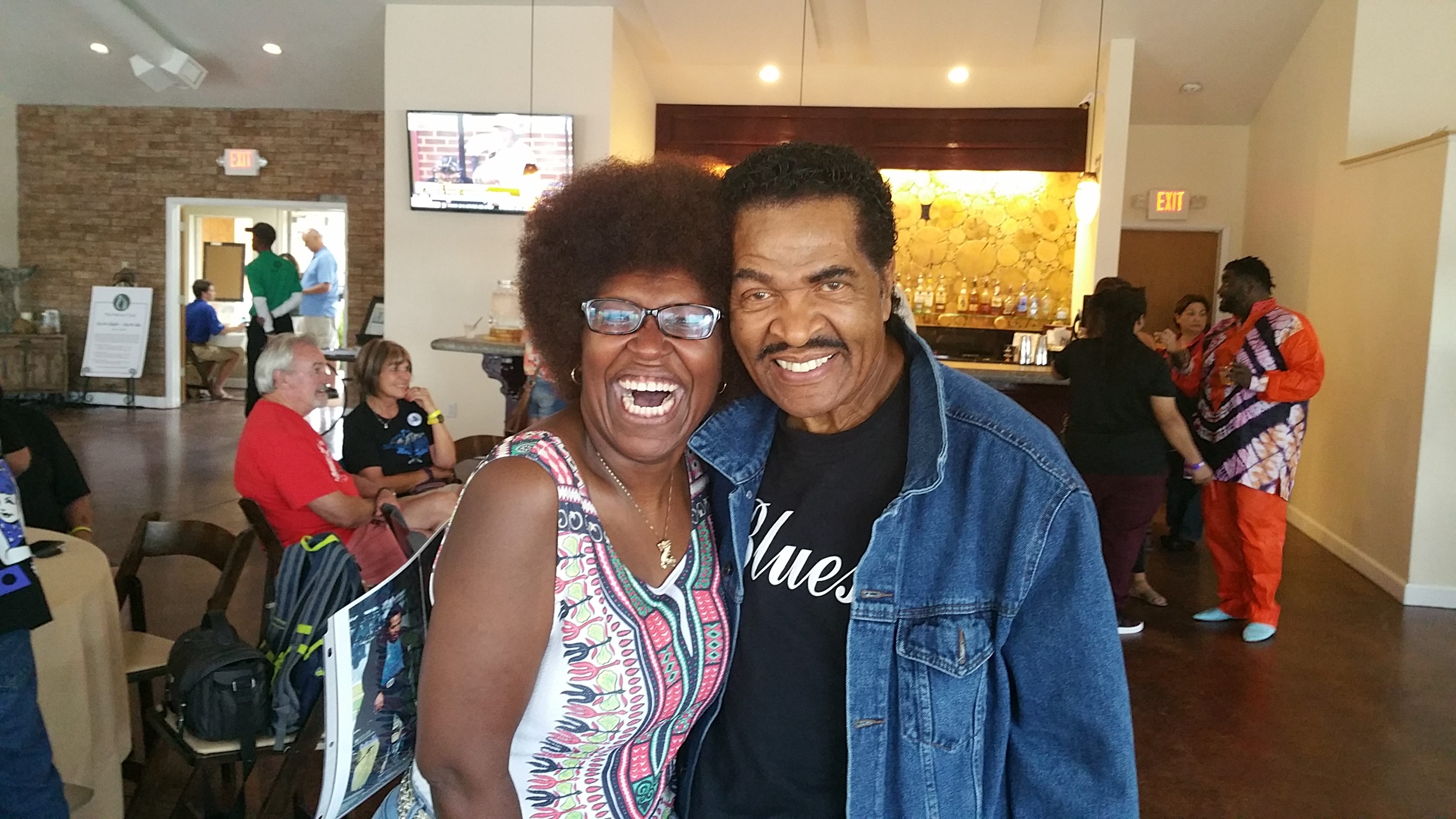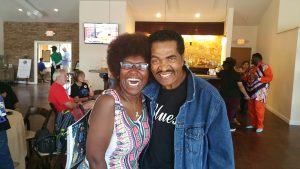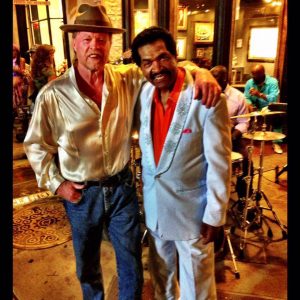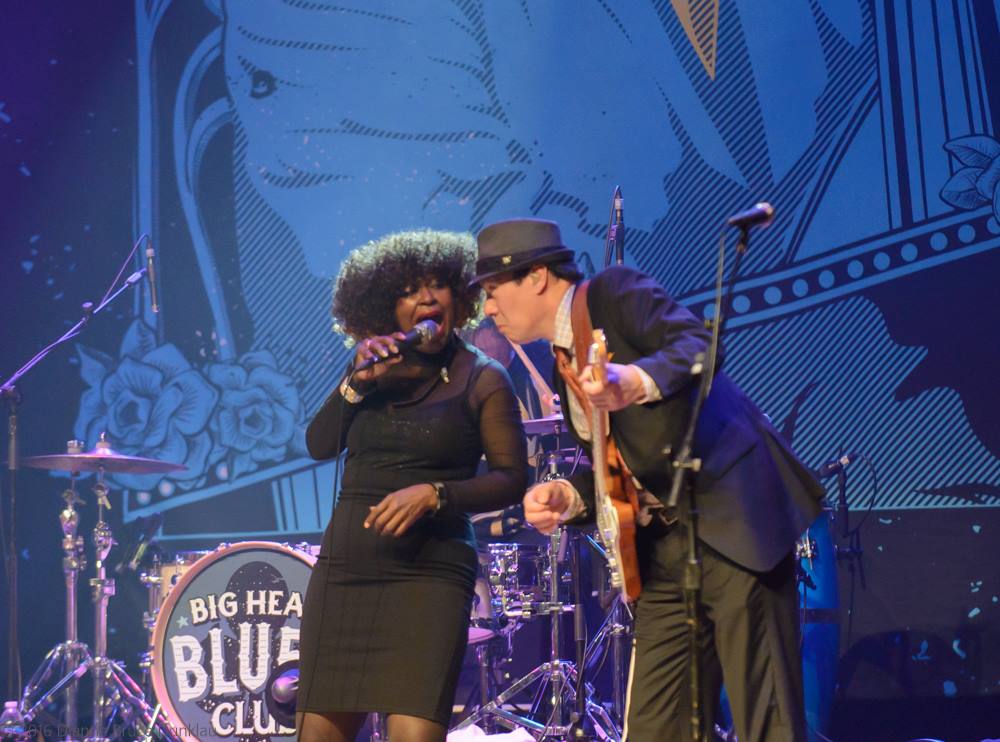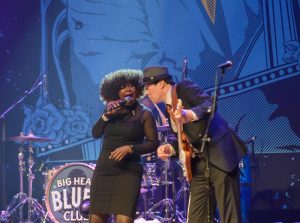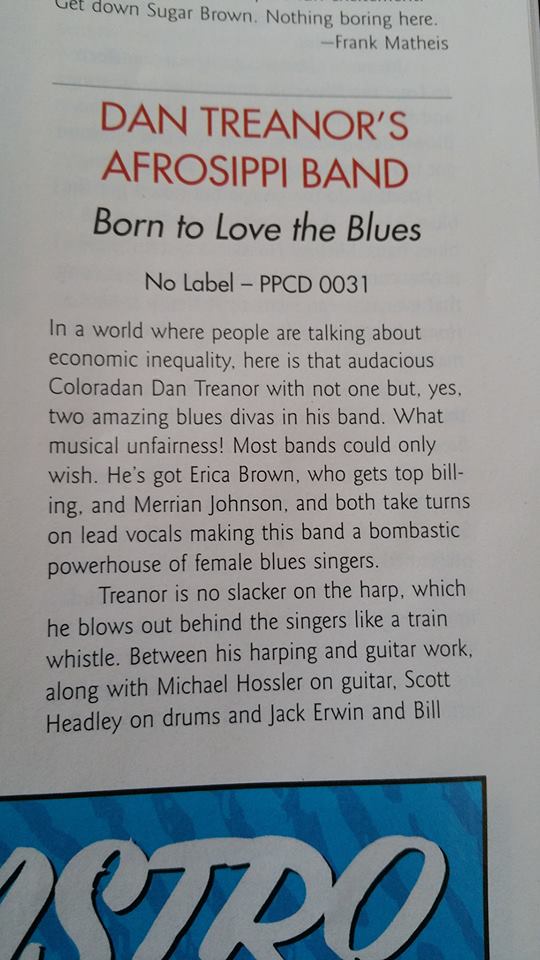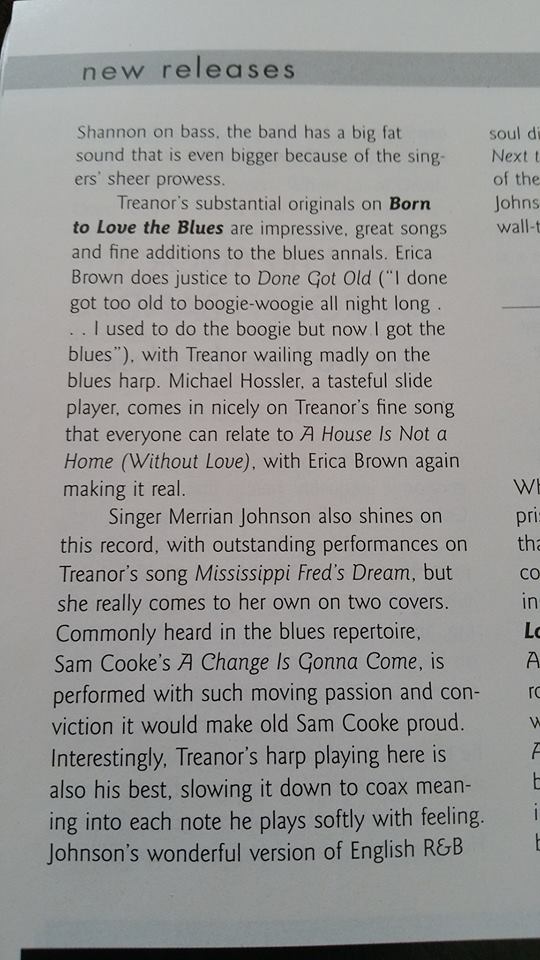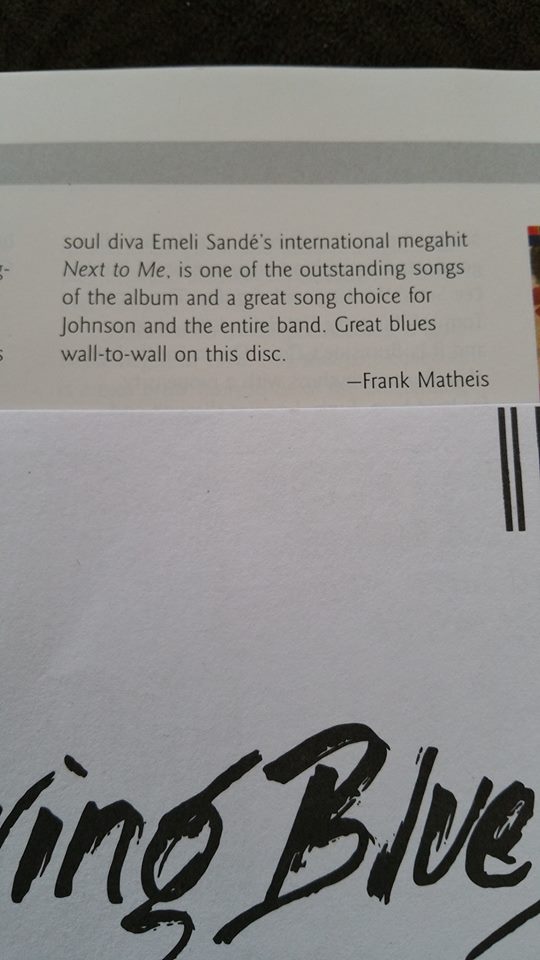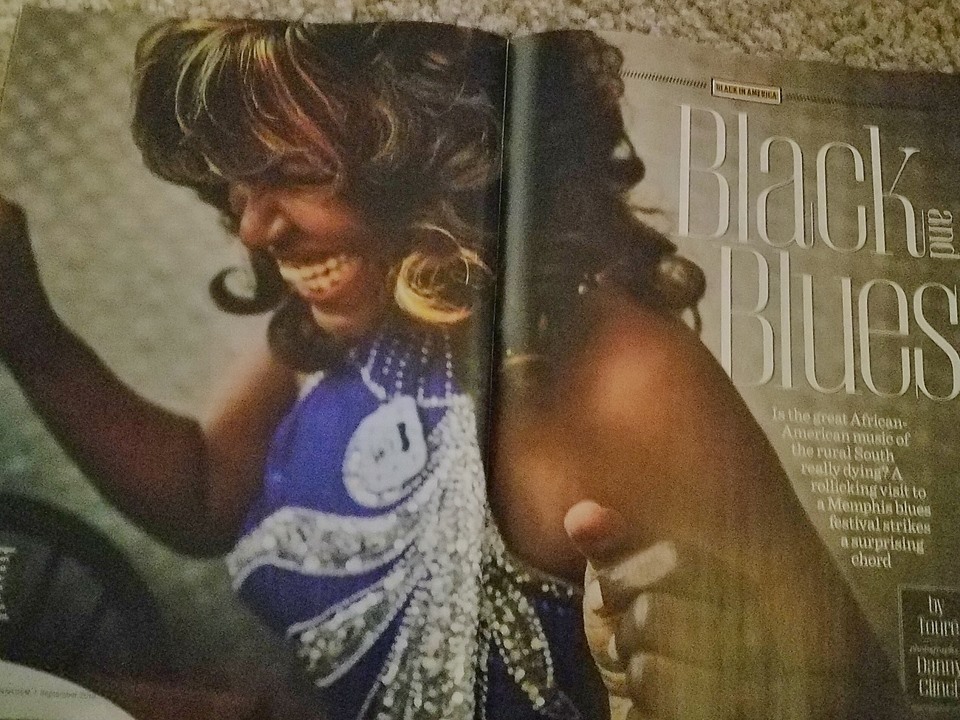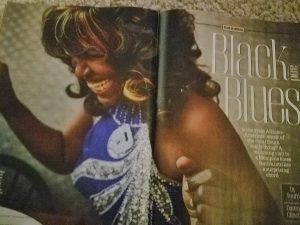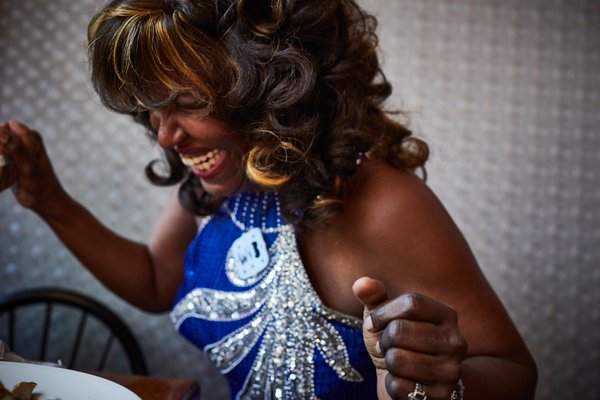Adam Pearce’s review, Blues Matters
DAN TREANOR’S AFROSIPPI BAND
BORN TO LOVE THE BLUES
They say that the blues is a broad church and Dan Treanor’s Afrossippi Band are exponents of the whole church. Mr Treanor himself plays some fine guitar and the guests on this album, Erica Brown and Merrian Johnson (MJ) are vocalists of massive talent in blues, soul, gospel and rock. Add to that Michael Hossler’s lap steel, Gary Flori on congas and a wicked rhythm section of Scott Headly and Jack Erwin (drums and bass respectively) why they achieved 3rd place in the International Blues Challenge. The album touches on just about everything that we normally call blues and the best parts of the album are where they try to stretch the format a little or where they do a little of the unexpected. Take Mississippi Fred’s Dream, a delightful piece of North Mississippi with fife and drums at the heart and superb slide geetar. But it is the way that they develop the song, bringing rock & roll, soul, gospel & jazz et al to show the roots of today’s music is in blues. These are not just excellent players who have great heart for the music, they understand it as well. Right from the opener Can You Hear Me you can hear traces of the classic players and singers but it has a fresh feel to it, thoroughly energised and you can feel the pleasure in every note. Treanor’s mouth harp on Done Got Old is stunning; dynamic and carrying the song brilliantly. Hurt Like Mine plays hard, dark and powerful with more of that wonderful harmonica and Erica Brown’s vocals spitting and angry but soulful as well. On the ballad side they do a fabulous version of Sam Cooke’s A Change Is Going To Come – soulful and loaded with feeling and everything the song needs; Merrian Johnson sounds like one of the few soul vocalists who can sing a note without a Whitney warble and the song hits directly to the listener’s heart. A gorgeous album, one I’ve been waiting around three years for, and I can only hope it is nominated for a stack of awards – it really is that good.
